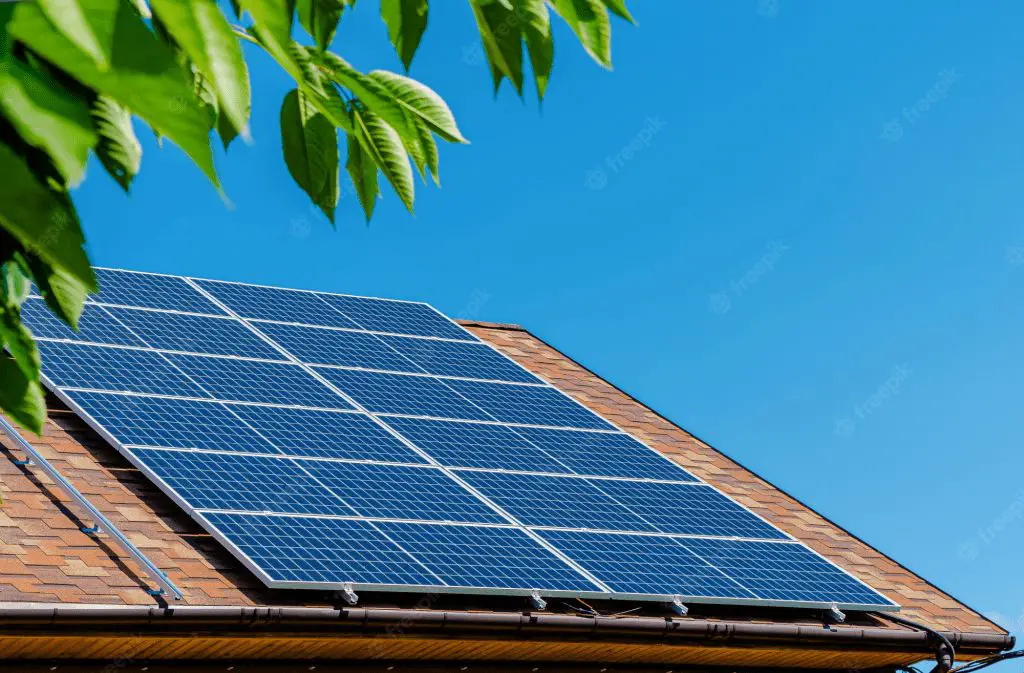Solar panels are an excellent way to harness the power of the sun to generate electricity. But with different solar panel sizes available, it can be tricky to figure out what a solar panel of a certain wattage can actually power in your home or business.
In this article, we’ll take a close look at what a 100 watt solar panel can power. We’ll go over the basics of solar panel electricity production, how much electricity a 100 watt solar panel can generate, what devices and appliances you can power with a 100 watt solar panel, and some key considerations when using a 100 watt solar panel.
Page Contents
How much electricity can a 100 watt solar panel produce?
First, let’s take a look at how much electricity a typical 100 watt solar panel can actually produce. This will give us an idea of how much energy is available to power devices.
The electricity production from a solar panel is measured in watt-hours, which is a combination of the wattage rating of the panel and the hours of sunlight during the day. The more sunlight that hits the solar panel, the more electricity it can generate.
On average, a 100 watt solar panel in full direct sunlight for 5 hours a day will produce about 500 watt-hours of electricity (100 watts x 5 hours). This number can vary based on the actual hours of sunlight available, angle of the sun, and geographical location.
Here is a table with some estimates for the daily electricity production from a 100 watt solar panel in different areas of the U.S:
| Location | Daily sunlight hours | Daily watt-hours production |
|---|---|---|
| Phoenix, AZ | 7 | 700 |
| Los Angeles, CA | 6 | 600 |
| Chicago, IL | 5 | 500 |
| Houston, TX | 6 | 600 |
| New York, NY | 4.5 | 450 |
| Seattle, WA | 4 | 400 |
As you can see, a 100 watt solar panel in sunnier locations like Phoenix can generate up to 700 watt-hours per day, while cloudier places like Seattle generate closer to 400 watt-hours. This table gives you a general idea of the electricity available from a 100W panel in different climates.
What can a 100 watt solar panel power?
Now that we know how much electricity a 100 watt solar panel can generate, let’s look at what devices and appliances you can actually power with this amount of electricity.
In general, a 100 watt solar panel produces enough power each day to operate several small electronic devices like:
- LED light bulbs
- Phone chargers
- Tablet chargers
- Laptop chargers
- Small fans or appliances
Here is an estimate of the number of hours you could run common items with a 100 watt solar panel generating 500 watt-hours per day:
| Device | Power consumption | Hours powered per day |
|---|---|---|
| LED light bulbs (set of 3) | 15 watts | 33 hours |
| Laptop | 50 watts | 10 hours |
| Electric fan | 50 watts | 10 hours |
| Tablet | 10 watts | 50 hours |
| Smartphone | 5 watts | 100 hours |
This demonstrates how long you could run small devices, assuming 500 watt-hours of generation per day from the solar panel. A smartphone could charge for up to 100 hours since it uses very little electricity.
However, a 100 watt solar panel would not produce enough power to operate larger appliances like:
- Refrigerator
- Air conditioner
- Electric oven
- Clothes dryer
- Air compressor
These types of appliances require much more power than a 100 watt panel can provide. You would need several 100 watt panels connected together into an off-grid solar array to have any chance of running higher-draw appliances.
Key Considerations for Using a 100 Watt Solar Panel
If you’re thinking about getting a 100 watt solar panel, here are some key factors to consider:
Batteries Are Essential
For stable power, you need to store the energy generated by your solar panel in a battery. That allows you to use the electricity anytime, not just when the panel is actively producing power during sunny hours. Deep cycle lead-acid batteries are commonly used for solar systems.
Get an Efficient Charge Controller
A charge controller manages the power from the solar panel to safely charge your battery bank and prevent overcharging. MPPT charge controllers are the most efficient type.
Calculate Your Loads
Figure out the wattage of the devices or appliances you want to power with the solar panel. That will help determine if a 100W panel provides enough power, or if you need multiple panels.
Consider Grid Tie Inverters
If you want to supplement your grid power, you can use a grid tie inverter to connect your 100W panel to your household electrical system.
Understand Local Regulations
Permitting requirements for home solar power can vary by state and municipality. Research the rules in your area before connecting a grid tie or off-grid solar panel system.
Conclusion
A 100 watt solar panel can be a great option for generating renewable electricity to charge small devices or operate low-power appliances. With average sunlight, a 100W solar panel will produce around 500 watt-hours per day, enough to power LED lights, phones, tablets, laptops, and small electronic gadgets.
But for higher energy consumption appliances, you’ll need a larger solar array with multiple 100 watt panels, batteries for power storage, and regulators like charge controllers. If you’re new to solar, start small with a 100W panel to get familiar with how solar electricity systems work before expanding your setup.
